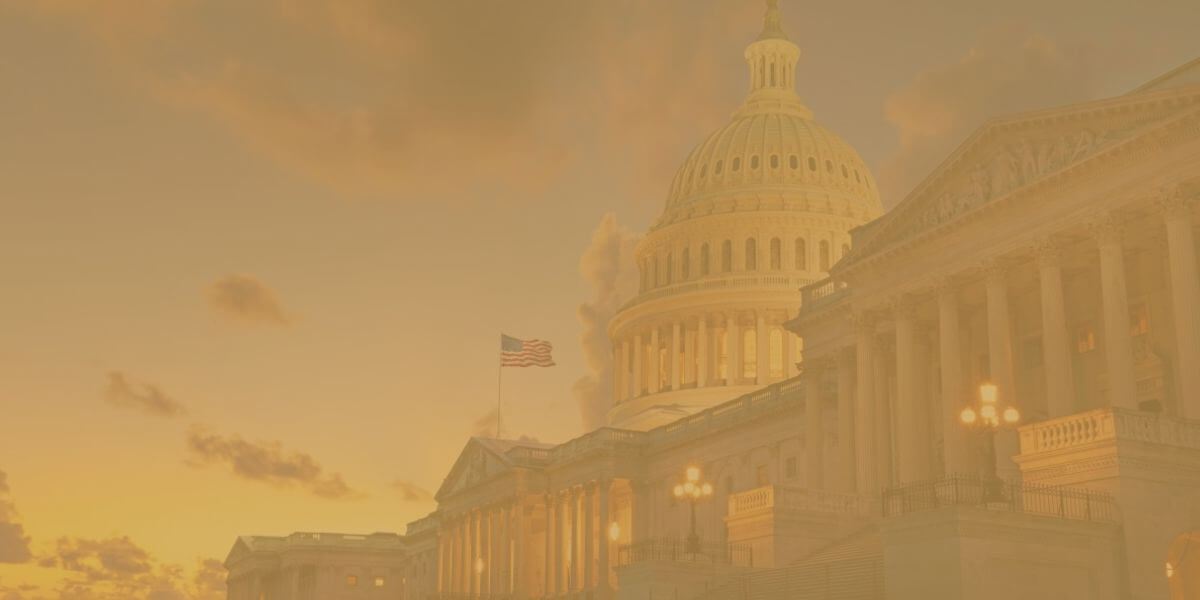Lower your internet bill
61% of people overpay for their internet.
Are you one of them?
Unlock exclusive offers in your area!
Call now
[tel]Enter zip code
1 Star is Poor & 5 Stars is Excellent.
* Required

Written by Rosslyn Elliott - Pub. May 07, 2024 / Updated May 10, 2024
Table of Contents

About the author
On April 30, digital rights groups and policymakers gathered at the Shaw/Watha T. Daniel Library in Washington to call for the continued funding of the Affordable Connectivity Program (ACP).
The rally was hosted by Public Knowledge along with co-organizers Civic Nation, the National Hispanic Media Coalition (NHMC), the National Digital Inclusion Alliance (NDIA), and the Digital Progress Institute (DPI).
Among the notable attendees were Senator Peter Welch of Vermont, FCC Commissioners Geoffrey Starks and Anna Gomez, and U.S. National Economic Council Deputy Director Jon Donenberg.
Senator Welch emphasized the importance of affordable internet access, stating, “[Americans] need access to high-speed internet just like they need access to electricity. This is what is required in a modern economy."
Commissioner Starks also supported continued funding for the ACP, stating, “Many households will have to face a tough choice: confront that rising internet bill or disconnect them and their household from the internet."
The ACP was created by Congress with an initial $14.2 billion allocation through the bipartisan infrastructure law. The program provides qualifying low-income households with a monthly subsidy of up to $30 ($75 on tribal lands) to help pay for internet service.
The ACP program is set to run out of funds by the end of May, potentially leaving over 23 million enrolled households without access to the many jobs and services that depend on high-speed internet..
In January, a bipartisan group of lawmakers introduced legislation to extend the ACP through the end of the year with an additional $7 billion in funding. Despite broad support from both parties, the bill has not moved forward. Resistance springs from House Speaker Mike Johnson, who has not allowed a vote on the legislation.

ACP bill stalled by Speaker Johnson
The end of the ACP threatens to widen the digital divide, which means the gap between those who have access to affordable, reliable internet and those who do not. High-speed internet has become a necessity for education, work, healthcare, and social connection. The ACP has been crucial in bridging this divide.
The ACP program has been widely used by low-income working families, military families, and Americans over the age of 50. Rural communities have also significantly benefited from the ACP, with more than a quarter of enrolled households located in these areas.
For tribal communities, the ACP has been a lifeline. Many tribal reservations are located in remote areas with low population density, making affordable internet access a challenge. The high infrastructure costs to build to these areas mean that wired internet service often is not available. The ACP’s higher subsidy of $75 per month for tribal households has helped enable satellite internet service (which is often more expensive than fiber or cable). People on tribal lands can use the internet for remote work, online education, telehealth services, and cultural preservation efforts.
Older Americans have also relied heavily on the ACP to stay connected. For many seniors on fixed incomes, the subsidy has made the difference between having internet access and being cut off from vital resources and social connections. The program has enabled older adults to access telemedicine services, connect with family, and participate in online communities, reducing social isolation and improving overall well-being.
If Congress fails to extend the ACP, the consequences could be severe for millions of Americans who rely on the program for affordable internet access. Many households may be forced to cancel their internet service altogether, while others may have to downgrade to slower, less reliable plans.
A survey by the FCC found that 30% of the households receiving ACP support, or about 7 million people, would have to cancel their internet service. This could exacerbate the digital divide, leaving low-income families, seniors, and rural communities without the connectivity they need to participate fully in the modern economy and society.

Elderly may lose internet access
Internet service providers (ISPs) have expressed concerns about the potential impact of the ACP ending on their customers and their businesses. Some ISPs may try to offer alternative low-cost plans to help mitigate the effects of the subsidy loss. For example, AT&T offers a program called Access from AT&T that can lower the cost of internet service for qualifying low-income families. Comcast’s Internet Essentials program, which predates the ACP, offers low-income households broadband service at reduced rates.
Lumen Technologies, the parent company of Quantum Fiber, also plans to work with customers. “Lumen strongly supports bipartisan legislation that will fully fund ACP as part of our digital inclusion mission," said Melissa Mann, SVP, Government Affairs and Public Policy at Lumen. “We are focused on communicating with our valued ACP customers and providing support to stay connected at an affordable rate."
We are focused on communicating with our valued ACP customers and providing support to stay connected at an affordable rate."—Melissa Mann, SVP, Lumen Technologies
There is another program to help with internet costs, though the subsidy is lower. The Universal Service Administrative Company offers Lifeline, with up to $9.25/month payment assistance for low-income families and $34.25/month for those living on qualifying tribal lands.
To check out all internet price tiers and internet options in your area, enter your zip code.

About the author
Congratulations, you qualify for deals on internet plans.
Speak with our specialists to access all local discounts and limited time offers in your area.
[tel]61% of people overpay for their internet.
Are you one of them?
Unlock exclusive offers in your area!
Call now
[tel]Enter zip code